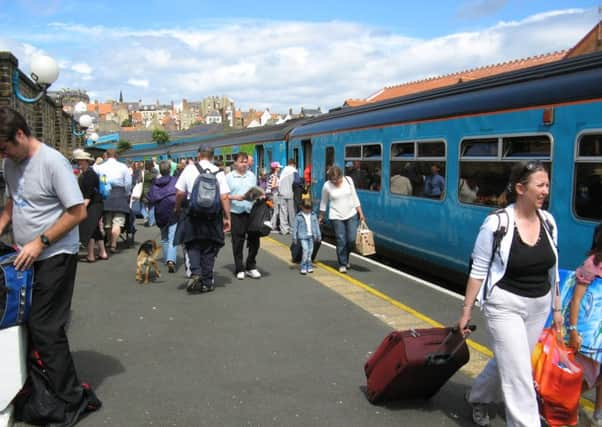There's more to unrest on the railways


I believe this is actually a red herring.
One operator has the ideal arrangement, which is that on arrival at a station, the driver releases the doors and the guard closes and locks them before giving the start signal to the driver. This pre-supposes that there is a guard.
Much is made of the fact that some of the busiest routes in the London area have been operating for years without a guard under the Driver Only Operation (DOO) agreement.
Advertisement
Hide AdAdvertisement
Hide AdThis would only have been arrived at with enhancement of the drivers’ pay in recognition of the extra responsibility, and involves the provision of mirrors or CCTV at every point, on every platform where the driver’s cab might stop, according to the lengths of train, so that they can see the situation on the platform before operating the doors.
Such an arrangement involves adequate numbers of station staff and was agreed before there was any question of reducing numbers, but there has been a strong push to reduce or even eliminate staff at stations.
All the stations on the Borders Railway are unstaffed, which is why there are no toilets, nor are there any ticket offices.
London Underground has succeeded in closing every ticket office on the system, making passengers dependent on machines, and every ticket office in the country is similarly at risk.
Advertisement
Hide AdAdvertisement
Hide AdThe operators offer financial incentives to people who buy their tickets online, but every ticket so bought is a nail in the coffin of the ticket office at, for example, Dunbar, Berwick, Alnmouth or Morpeth.
Machines demand answers, but do not respond to questions. People like to relate to somebody who can give them reassurance if they are not familiar with the railway environment.
How many passengers are content to know that their train has no guard? More particularly, how many women travelling alone in the evening like the idea?
Assurances have been given that there will always be a second person on the train in the form of a ‘customer services assistant’, but the driver would be able to operate the train on their own so sooner or later the number of customer service assistants may diminish.
Advertisement
Hide AdAdvertisement
Hide AdThe real reason for the removal of guards, I suspect, is financial. People cost money. The Government encourages operators to bid for franchises on the basis that they will reduce costs. If they cannot do this, the operators will be unable to make the payments they have promised, and passengers on the East Coast line know what happens then.
GNER set high standards. Its staff training held up during the short period that National Express ran the trains, then the Government operator of last resort ran it for far longer than intended, and paid large sums of money back to the Treasury. Political ideology required that it should be returned to the private sector.
The image of Jeremy Corbyn sitting on the floor of a “ram-packed” train was directed at Virgin Trains, although it has only 10 per cent of the franchise. This represents the paint and the style, while the operation is mainly down to Stagecoach, which also operates South-West Trains and East Midland Trains, where there is apparently no suggestion of doing without guards, and therefore apparently no discontent on the part of the unions.
While it seems unlikely that long-distance mainline trains will be deprived of guards, even when the new trains are introduced in a year or two, the union is reacting to the idea that Virgin Trains East Coast has to reduce its staffing level.
Advertisement
Hide AdAdvertisement
Hide AdThis appears to be staff at stations, rather than on trains, though watch out for the standard class trolley. This so often fails because of “lack of staff”.
John Wylde is the author of Integrated Transport — a Will-o’- the-wisp? This book is priced at £14.95, post paid and signed by the author. Also Experiments in Public Transport Operation, at £11.95. Order through the author’s website — www.john-wylde.co.uk